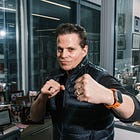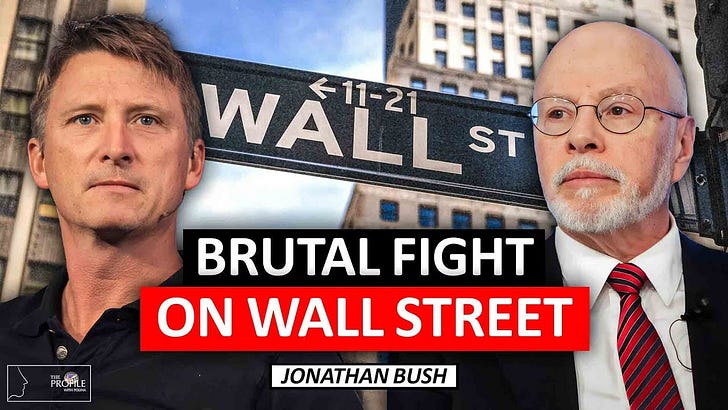As a profile writer, and my job is essentially to get really, really curious about people — sometimes high-profile people — and try to understand what drives them. Not just what they do, but why they do it. What haunts them, what motivates them, what patterns they repeat without realizing.
I run an independent media company called The Profile, where I publish deep-dive profiles on people you think you know — but maybe don’t. Recently, I’ve written about Wall Street investor Anthony Scaramucci, real estate mogul Ryan Serhant, and many others. And with each story, I’m trying to dig past the headlines and craft something that’s both psychologically rich and strategically useful. Because I don’t think profiles should just entertain us, I think they should teach us something about how to live.
This ‘Ask Me Anything’ is all about the how. How I pick my subjects. How I get people to open up. How I organize my research, structure a narrative, and decide when something’s “done.” You know I love specifics, so we’ll get into tools, tactics, mistakes, ethics — all of it.
I hope you enjoy it by watching the video at the top of this article.
Here is an excerpt:
Q: What are some psychological tools you use when profiling someone?
When I’m profiling someone, so I pay attention to, mostly, what isn't said: The hesitations, the contradictions, the patterns that keep coming up across interviews.
What are the things they keep repeating? But more importantly, what are the things that they try to avoid and try to sweep under the rug? That’s where the tension lies, and that's where the truth lies.
I try to understand their worldview. What drives them, what scares them, what inherent wound are they trying to heal?
I do think that all of us have some sort of unspoken need that drives us. Why do we keep doing what we do every single day? There's something we're trying to resolve within ourselves. So I try to constantly ask myself: ‘What is underneath the surface here? What are they trying to tell me without actually telling me? What do they crave but never quite say?’
Often, I find that that crave or need is not going to be found in their words, it's in their actions. Who you are is not what you say. Who you are is actually how you move through the world and how you act within it and interact with other humans.
Q: How do you make people feel comfortable talking to you — sometimes about vulnerable or difficult things — in a short amount of time?
When I am shadowing someone, I try to show up as a real person. I show up as me, and I'm just a naturally curious person, so I'm just gonna ask you questions throughout the day.
I also try to match the tone that I'm asking them to meet. If I'm asking about something personal or painful, I don't rush past it to get to my next topic. I slow down. I sit with the silence.
You know have asked a good question when there's not a canned answer. If the person has to really think about it, then you've done your job. So few interviewers these days make people think.
A quick way to build intimacy quickly is to share something intimate of your own. It's not about making it about yourself, it's to give the other person permission to share something personal too. That really creates a sense of mutual trust. Vulnerability often invites vulnerability.
And above all, I treat what people say with care. When somebody opens up — especially early on — I don't take that lightly. I think if a person sees that you're being real, that you're being genuine, that you're really interested in asking true questions, it's an innate thing for them to open up.
Q: I would like to know what done means to you and how do you decide when it’s good (or great) enough to publish!
There's a quote that I love by Leonardo da Vinci: “Art is never finished, only abandoned.” And that's how most profiles feel to me. You can keep tweaking them forever and ever and ever, but over time, I've learned to listen for that internal signal that's like, “This is honest. This is as close to the truth of this person as you're gonna get. Publish it.”
But you’re never quite done. You're never done. Even still, I wish there were things I included that I didn’t include. Malcolm Gladwell also had this great insight that people remember things that are slightly off, things that are not perfect. He has a quote that says, “You want an aftertaste, and that comes from not everything being perfectly blended together.” That little bit of friction or rawness is what makes it memorable. So now, when I finish a profile, instead of asking, ‘Is this flawless?’ I ask, ‘Is this interesting?’













